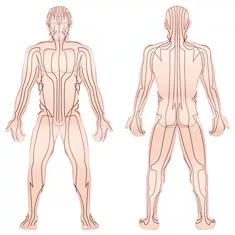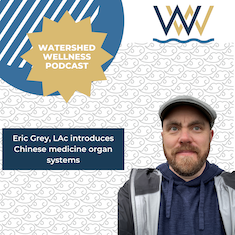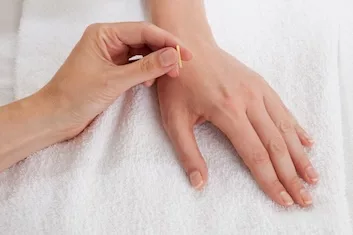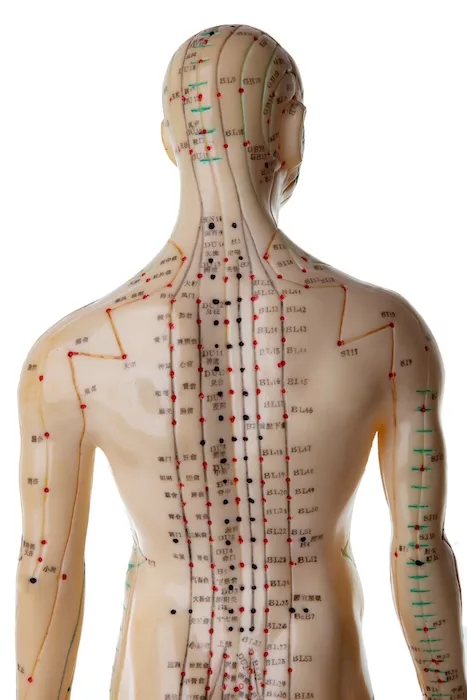Most people new to acupuncture worry that it will hurt. Most of us are familiar with hypodermic needles used to give injections and draw blood – and have had some pain from those procedures. Thus, the question!
The simplest answer is – no, it doesn't hurt, particularly in comparison with those needle experiences.
The more complex, and honest, answer is that it depends. The style of the acupuncturist, your current health situation, even the heat and humidity of the treatment area can all contribute to the amount of sensation you feel during acupuncture. That said, the vast majority of patients do not feel significant pain during treatment, and those that do usually find that after the initial needle insertion, the sensation decreases to almost nothing for the duration of treatment.
There are many reasons that acupuncture is less painful than other needle experiences.
One of the most important is that the needle size is MUCH smaller than hypodermics.
Most practitioners use 32-38 gauge needles – which average about a quarter of a millimeter in size. The average blood draw is done using 18-21 gauge needles, which are around .8 of a millimeter in size.
While that difference may seem small, to sensitive skin it means a lot!
US acupuncturists must first obtain a Bachelor's degree before applying for medical school. They then do a 3-6 year Master's or Doctorate program at a Nationally accredited institution.
The education includes a foundation in biomedical anatomy, physiology & pathology as well as significant information about safety, consent, privacy and other important ethical issues.
The remainder of the program consists of Chinese medical theory, acupuncture theory, and many programs also cover Chinese herbs and dietetics. The last year of education is typically devoted to clinical education.
In the US, acupuncturists are licensed by state medical boards or specialized state acupuncture boards. National certification through the NCCAOM is also available and requires significant training and recertification every 4 years.
All acupuncturists are required to do extensive continuing education in order to maintain licensure.
When practiced by a licensed practitioner, acupuncture is very safe.
There are very few documented cases of any significant harm being caused by a licensed acupuncturist. You will receive an acupuncture consent form prior to your first treatment that lists all the potential complications from acupuncture treatment. If you have any questions or concerns after reading this document, don't hesitate to ask your practitioner.
US acupuncturists receive ample training in safe & sterile needling technique, the control of infectious pathogens, CPR and first aid, as well as how to handle any potential complications of acupuncture should they occur.
Please wear comfortable, loose fitting clothing to your session. Shorts and a tank top are ideal. If your practitioner needs to needle an area that cannot be easily uncovered, you may be asked to undress and either wear a medical gown or to drape yourself with a sheet or blanket. Your modesty and comfort will always be respected.
Don't come to treatment if you are very hungry, exhausted, or if you are intoxicated in any way. It's best not to have nicotine or caffeine for the 4 hours leading up to treatment if possible.
We also ask that you do not wear strong scents like perfume to your treatment to protect our staff and patients with chemical sensitivities.
You will likely feel very relaxed, perhaps even a bit sleepy, after your treatment. Because of this, it is best if you can rest, or do some gentle movement like yoga or a walk, after your treatment. You should certainly avoid any strenuous or stressful activities if at all possible.
It's a great idea to write down any notes you have about your treatment in the 24-48 hours afterwards, you can then share this information with your practitioner at your next session. Information like this is very helpful in guiding your treatment progression!




